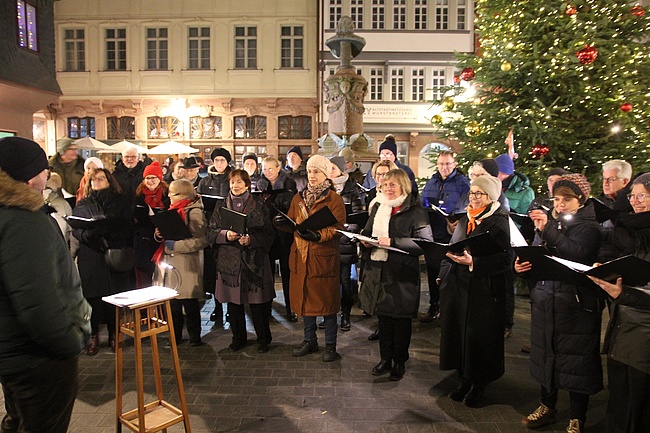So now it's official: with the vaccine of the German company Biontech, the first vaccine against the Corona virus was also approved in Germany on Monday, Dec. 21. The vaccination will start in Hesse on Sunday, 27.12.2020. In a press conference, Social Minister Kai Klose and Interior Minister Peter Beuth announced further details about the vaccination start in Hesse. The most important info here is that the 28 vaccination centers, all of which are operational, will not yet be used in the first stage. These are only from phase 3, when perspective enough vaccine is available, actually put into operation.
On Sunday starts first of all phase 1. For this 10,000 vaccine doses are available, half of which should be vaccinated immediately. For this purpose, mobile vaccination teams from the vaccination centres in the individual counties and independent cities will come to old people's and nursing homes. In Frankfurt, for example, 300 doses will be available on the starting day. Another 150 doses are available for the University Hospital, one of Hesse's seven priority hospitals, whose staff will also be vaccinated from Sunday.
In the days that follow, just under 100,000 more doses will be available for Hesse combined. Again, only half will be vaccinated at first, so that there will definitely be enough doses for the second vaccination, which is needed for full protection.
In phase 2, six regional vaccination centers will then be opened: These will be the vaccination centers in Frankfurt, Kassel, Giessen, Fulda, Wiesbaden and Darmstadt. This phase will start as soon as there is a steady supply of vaccine and as soon as there has been widespread vaccination in retirement and nursing homes, as well as in hospitals. Minister of the Interior Beuth expects that this phase could start in the middle/end of January. Phase 3, in which all 28 vaccination centres will then be used, could start a few weeks later, provided that further vaccines are approved. If all 28 vaccination centers are operated at full capacity, about 30,000 Corona vaccinations could then be given daily in Hesse. But as already mentioned: this goal is only achievable in perspective as soon as an influx of corresponding quantities of vaccines is ensured in a steady and predictable manner.
In short: It will be some time before sufficient vaccine is available. The first doses will first go to the people who need the vaccine most urgently. As soon as it is foreseeable that the vaccination centers will open, citizens who fall into the highest priority according to the federal vaccination regulation (§ 2 ImpfVO) can make their personal vaccination appointment via a nationwide hotline and a registration portal on the Internet. Hotline and online registration portal are provided by the federal government uniformly for all of Germany. The Länder will each take care of the specific appointment allocation in the background of the nationwide uniform hotline and registration portal.

Graphic: © HMdIS
Federal classification of prioritization groups according to vaccination regulations
A. Highest priority vaccinations (§ 2 Vaccination Ordinance)
People 80 years of age and older. Age
Persons in elderly and geriatric care facilities (employees and residents)
Employees of outpatient care services
Employees in medical facilities with very high Covid-19 exposure risk (esp. Intensive care units, emergency rooms, ambulance services)
Employees in medical facilities treating persons in whom Covid-19 infection is expected to be severe or fatal (esp. Hemato-oncology, transplant medicine)
B. High priority vaccinations (§ 3 ImpfVO)
Persons 70 years of age and older. Age
Persons at special risk of severe or fatal course of infection (persons with trisomy 21, dementia, or mental retardation, and organ transplant recipients)
Persons in homeless and asylum seeker shelters
Persons working in the public health service or in a particularly relevant position to maintain hospital infrastructure
C. Protective vaccinations with increased priority (§ 4 ImpfVO)
Persons aged 60 and over
Persons who are at increased risk of severe or fatal disease progression following infection with the SARS-CoV-2 coronavirus due to a specific chronic pre-existing condition.
Persons working in areas of medical facilities with low risk of exposure to SARS-CoV-2 coronavirus, particularly laboratories and personnel who do not care for patients with suspected infectious diseases<x>.BR</x>Persons working in particularly relevant positions in governmental institutions, especially in governments and administrations, armed forces, police, firefighters, civil protection, parliaments and judiciary,
Persons working in particularly relevant positions in other critical infrastructure institutions and companies, in particular in the pharmacy sector, the pharmaceutical industry, the water and energy supply, food and waste management, transport and traffic, and information technology and telecommunications,
.x>BR</x>persons working as educators or teachers,
persons with precarious working and/or living conditions, especially seasonal workers, workers in distribution centers or the meat processing industry,
persons working in retail trade.
For more info, visit: www.corona.hessen.de












